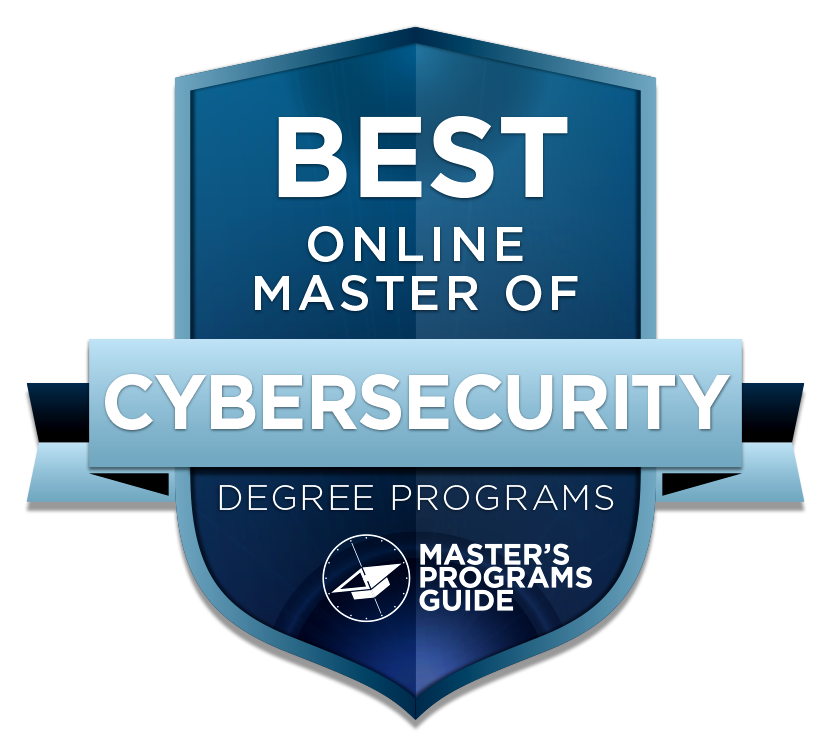How We Rate the Best Online Colleges
In order to create our yearly Best Online Colleges list, BestColleges assesses hundreds of institutions using the most up-to-date information from resources like the College Scorecard and the Integrated Postsecondary Education Data System (hosted by the NCES). (hosted by the U.S. Department of Education).
We choose institutions based on the following standards:
Every school has to be a recognized nonprofit, public or private establishment.
Each college must be a four-year university.
Each institution is required to provide three online master’s degrees and at least 10 online bachelor’s degrees in a range of disciplines.
Schools must be located on the U.S. mainland, in Alaska, or in Hawaii.
Then, using our unique approach, we determine the top 25 online schools in the country by meticulously weighing the standard of online programs, student outcomes, and anticipated returns on investment.
For more information about the standards we maintain, see our Editorial Policy.
Our Methodology




50%: Early Career Earnings Expected (ROI)
We deduct your total cost from your anticipated wages as a recent graduate to calculate your ROI. (compared to what you would be making if you only had a high school degree).
Full-time Retention Rates of 15%
We only choose colleges with reliably high retention rates because otherwise, students aren’t receiving their money’s worth.
15%: Online Products
To be considered, schools must provide a wide range of excellent online programs, degrees, and credentials.
High Graduation Rates of 20%
Schools that will help you graduate strong are given priority.
Top Online Colleges and Schools with Accreditation
University of Florida
Gainesville, Florida’s state University of Florida is located in a region renowned for its ancient buildings and scenic landscapes. Over 300 undergraduate and doctoral degrees are available through UF’s 16 departments of study.
The University of Florida takes the top position on our list this year due to its outstanding online degree offerings, affordable tuition, and great student outcomes. In addition to offering top-notch academics, UF also has many cutting-edge research centers, a 17-to-1 student-to-staff ratio, and Division I athletics (go Gators!).
UF recently revealed that current congressman Ben Sasse will take over as the school’s 13th president in the early 2023 academic year.
Average Tuition
In-state
$4,477
Out-of-state
$25,694
ROI Score
HIGH
Retention Rate
97%
Admission Rate
31%
Students Enrolled
53,372
Institution Type
Public
Percent Online Enrollment
92% i
Accreditation
Yes i
Golden Gate University
In San Francisco, California, there is a private institution called Golden Gate institution. The city’s financial center is directly next to the campus. In disciplines like business, bookkeeping, technology, taxation, and law, GGU provides more than 60 degree programs.
Golden Gate University, a self-described “university for professionals,” is a fantastic option for working adults seeking to advance their jobs. There are internet, weekend, and nighttime courses available. GGU is renowned for its top-notch instruction, intimate class numbers, powerful job placement assistance, and extensive alumni network. The majority of its students receive financial assistance, demonstrating the school’s commitment to eliminating obstacles to higher education.
A noteworthy fact is that Golden Gate University has a long tradition of helping armed personnel. Since the first returning World War I troops returned home to participate in GGU law classes, the school has produced illustrious military grads and assisted veterans in achieving their post-service job objectives for approximately 100 years.
Average Tuition
In-state
$12,456
Out-of-state
$12,456
ROI Score
HIGH
Retention Rate
Not provided
Admission Rate
Not provided
Students Enrolled
2,472
Institution Type
Private
Percent Online Enrollment
67% i
Accreditation
Yes i
Union Institute & University
Private Union Institute & University in Cincinnati, Ohio, provides 100% online and blended programs. You can study for degrees in public service and social justice, education, healthcare, and mental wellbeing.
Union has won praise for the variety of its student population and its accomplishments in assisting more experienced adult learners. It also has a modest staff-to-student ratio of 7 to 1, so you can be sure you’ll get the help and care you need to succeed. As a consequence, many people consider the institution to be among the best online universities.
Even better: There is no fee to register, and exam results are not necessary!
The Institute for Social Justice was established by the school in 2018 with the goal of advancing social justice at home and overseas by eradicating racism and decreasing economic inequalities.
Average Tuition
In-state
$15,510
Out-of-state
$15,510
ROI Score
HIGH
Retention Rate
Not provided
Admission Rate
Not provided
Students Enrolled
809
Institution Type
Private
Percent Online Enrollment
100% i
Accreditation
Yes i
Thomas Jefferson University
Philadelphia, Pennsylvania’s Thomas Jefferson University is a private academic university. Over 200 undergraduate and graduate degrees are available through its ten institutions and four schools.
Jefferson is renowned for providing a unique, practical, inter-professional learning method known as “Nexus learning.” The goal is to prepare grads for a world and workplace that are changing quickly and where their future careers might not even exist yet. Because of this, graduates from Jefferson have a competitive advantage that many companies value. 97% of the class of 2021 graduates, according to the school, are either working or engaged in graduate programs.
Notable Fact: On national licensing and certification exams, nursing grads from Jefferson consistently rank among the best in Pennsylvania. For instance, Jefferson’s College of Pharmacy’s most recent graduating cohort had a 98% licensure success rate.
Average Tuition
In-state
$40,680
Out-of-state
$40,680
ROI Score
HIGH
Retention Rate
84%
Admission Rate
70%
Students Enrolled
8,286
Institution Type
Private
Percent Online Enrollment
79% i
Accreditation
Yes i
University of Central Florida
In the Florida regions of Orlando is the sizable public research institution known as the institution of Central Florida. Over 220 degree options are available through the school’s 13 schools. Psychology, computer science, biology, health studies, and mechanical engineering are popular disciplines for undergraduates at UCF.
For space research, the University of Central Florida is a well-known institution. The institution has been actively involved in space study and exploration for more than 50 years. To make space flight to the moon and Mars safer, the Stephen W. Hawking Center for Microgravity Research and Education at UCF is heading the fight.
An interesting fact is that almost 30% of Kennedy Space Center workers are former Knights.
Average Tuition
In-state
$4,478
Out-of-state
$19,810
ROI Score
HIGH
Retention Rate
92%
Admission Rate
45%
Students Enrolled
71,881
Institution Type
Public
Percent Online Enrollment
96% i
Accreditation
Yes i
Benefits and Drawbacks of Online Degrees
We all have a fairly decent notion of what it’s like to live over Zoom after almost three years of a pandemic. However, it doesn’t follow that everyone is a good candidate for online education.
If you want to seek an online degree, think about the advantages and disadvantages.
Pros
Flexible: Complete an accelerated curriculum rapidly. Alternately, reduce your pace to a part-time schedule. Fit school into your timetable by listening to taped lessons while exercising on the bike or perusing prescribed material during lunch.
Accessible: Log in from any location at any moment to get work done. Leave moving, traveling, obtaining childcare, and asking leave from work to attend class behind.
Affordable: While online education is not always less expensive than on-campus tuition, you will probably avoid many on-campus fees and costs. Additionally, there are some online colleges that are incredibly cheap.
Reduce opportunity expenses by taking advantage of the fact that many online pupils work and learn simultaneously. As you pursue a degree, you can continue to advance your job and your bank account rather than losing years of revenue and work experience.
Student happiness 70% of students believe that online education is on par with or superior than on-campus instruction, according to our 2022 Online Education Trends Report. Additionally, 90% of grads stated that they received value for their money from their online degree.
Cons
Less in-person interaction: In a traditional, in-person classroom environment, some pupils may learn more effectively.
More difficult to network: Establishing a network in a remote learning setting can be more difficult.
Self-motivation is necessary because some students may find that the structure and responsibility of in-person instruction helps them better handle their time and workload.
Low perseverance rates: Online students drop out at a greater rate than their in-person counterparts. This is due to a number of variables, including poor drive, insufficient technical or time management skills, and workload disputes, according to a 2022 study published in Frontiers in Psychology.
How to Choose an Online College
Your education and potential career will be shaped by the institution you end up attending. The following are the important elements to take into account before enrolling:
Costs: In addition to school, you’ll need to plan for extra expenses for technology, literature, materials, and fees.
Financial aid: Different institutions have different financial aid programs. Scholarships and grant-based assistance can reduce your out-of-pocket expenses.
A institution that is not correctly accredited is not worth your time or money. This is particularly true if you want to be eligible for government financial assistance, professional licenses, or certifications.
Learning style: Do you need a school that is entirely online, or can you manage some in-person requirements? Do you intend to enroll full- or part-time?
Resources for students: The finest online schools have strong systems and tools to support students’ success, including advisers, teachers, library access, career services, job opportunities, and mentoring opportunities.
How to Apply to a Program Online
Similar entrance criteria apply to most online universities:
Internet-based program
Authentic recordings
results on standardized tests (though some schools are test-optional)
a biographical statement, three recommendations, and
It’s also possible that you’ll need to fulfill more conditions, like going through an interview or sending financial assistance paperwork, application costs, or transcript evaluations.
Remember: The typical student goes to six schools, so give yourself plenty of time for the application procedure.





